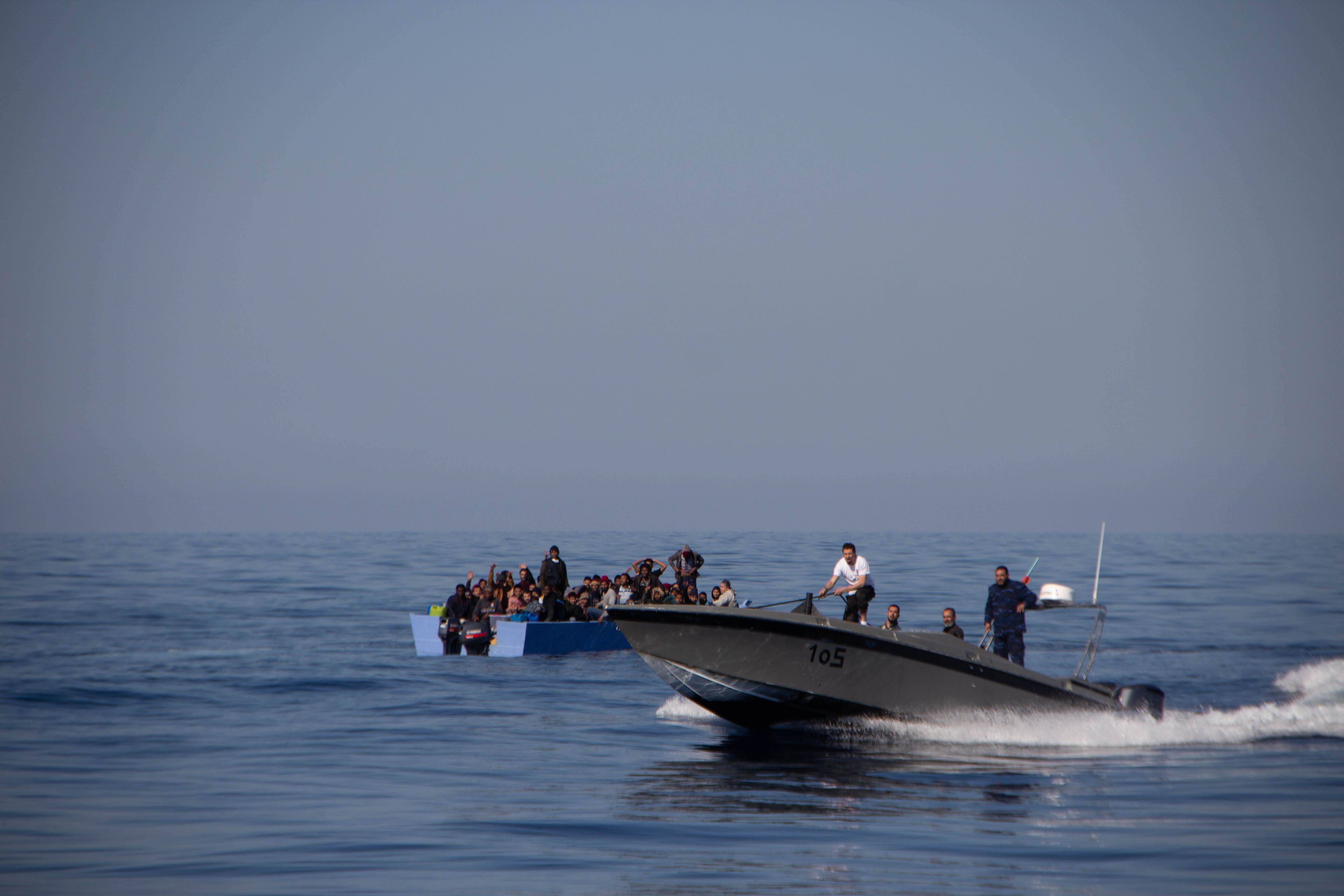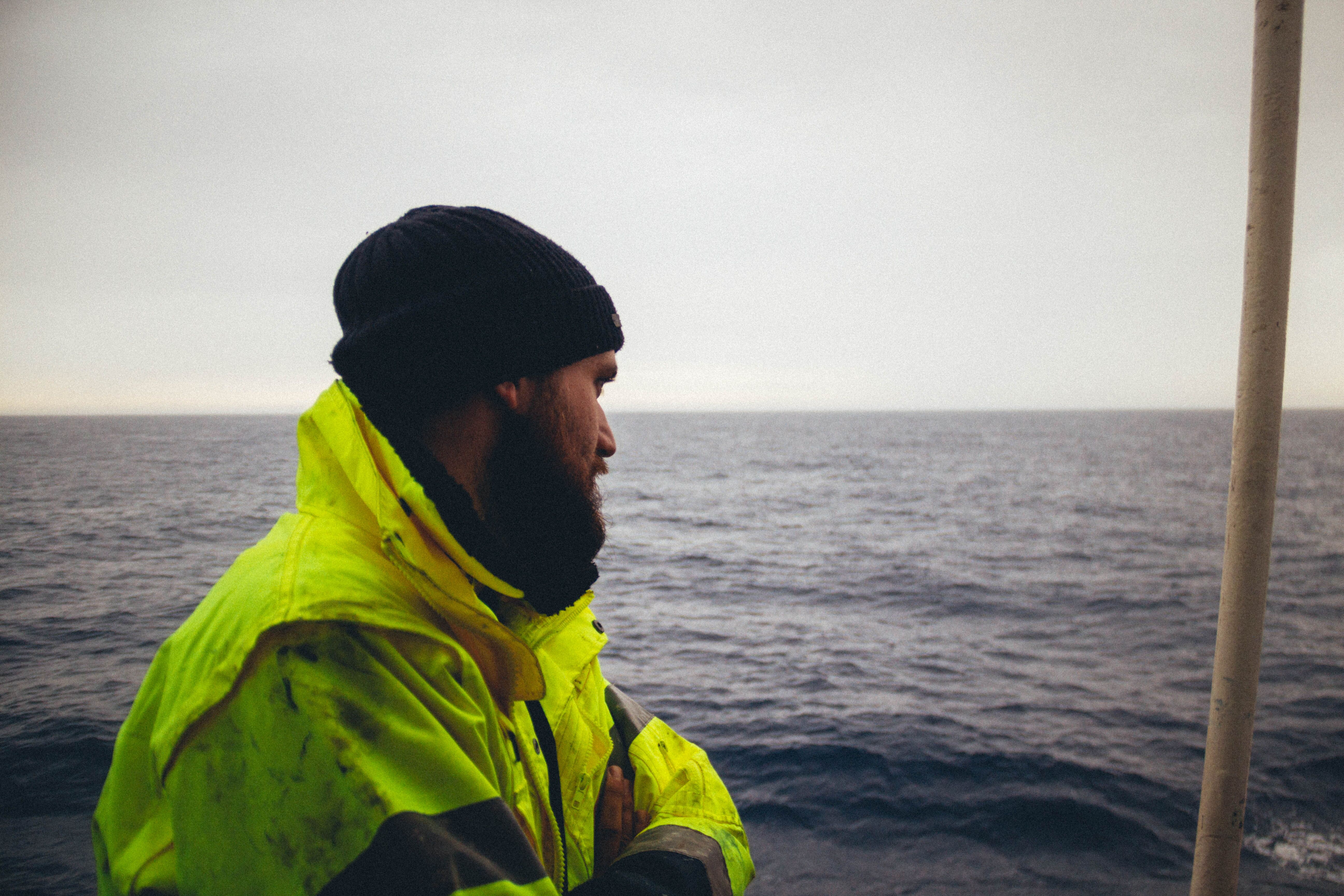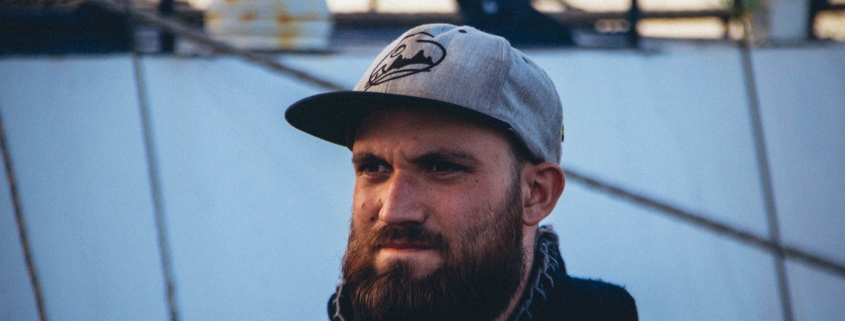There is no argument in favour of returning people to Libya
Interview with Stephen, human rights observer on board the ALAN KURDI
Human rights observer aboard the ALAN KURDI. What does this job entail?
The human rights observer has essentially multiple tasks. The first task is normal shift operations: being on guard duty, cooking food, all those tasks on board that all crew members do.
During a rescue, the human rights observer documents the operation. Every detail is kept in minutes: When was which e-mail sent to the authorities, who communicated what via radio? This serves the documentation of the events, should any judicial conflicts arise for whatever reasons. Where the rescue happened and how many persons were rescued needs to be precisely recorded.
For this, we make photos and audio recordings and supplement them with our notes. As indicated by the title of the human rights observer, I put special emphasis on the human rights situation. Especially when Libyan boats show up to the location of the rescue, this can be decisive. How to the different actors behave, do all adhere to the applicable laws? This can also concern the own crew.
The third task consists of collecting information about the human rights situation on the flight routes and in the countries of origin. For this, I conduct interviews and ask the people what happened to them and about their reasons for fleeing. Sometimes, the medical team makes me aware of clear signs of torture. If the person expresses the need to document their experiences and to have a conversation, I offer an interview and try to learn what happened.
These human rights violations must be documented and finally made public.

How do you cope with these experiences personally?
As long as I am on board of the ALAN KURDI, there is no proper processing happening for me, I am not that far yet. For the time after the mission I have my own techniques that I developed in similar positions, for example in Ghana. Among them are music, sports and meditation to process these things.
Other organisations such as Repubblika document sometimes unimaginably cruel torture inflicted upon refugees. What do the guests tell you?
The stories I am told almost always start in the moment when people leave their country. They tell of arbitrary arrests, corruption, of human trafficking. But the focus of their escape stories lies mostly on Libya and the detention camps there. On this mission, I have heard a lot about forced labour, torture and human trafficking. Many were threatened in order to extort money from them and their families. Almost everyone mentions this. In addition, there are stories about human rights abuses they witnessed, how people were randomly shot or left in the desert. Some report sexual violence – basically, the entire range of human rights abuses one can imagine. All of this, people recounted in these interviews. Due to the tense situation on board, I had little time for these interviews. But what I heard was more than enough.
When hearing of all these cruelties and having to document then, how sensitively do you react to the argument, that the people are to be sent back to Libya?
This is indeed an argumentation that drives me furious. Most fleeing people do not originally come from Libya but have fled via Libya. Some had migrated to Libya for work. With the intensification of the conflict in Libya, the return route to their home countries is severed. Some have raised a lot of money for their flight and then experienced horrors.
Many have boarded a seaworthy boat with the certainty that this journey can lead to death. And they were forced to do it anyway, because the situation in Libya is unbearable.
The pushbacks conducted by Malta make me speechless. There is no argument that speaks in favour for returning these people to Libya. These people flee from violence, exploitation and torture. Some say they would rather die than return to Libya. Yes, it is true, I do react sensitively.
What do you think awaits refugees in Libya?
That is indeed hard to say in the times of Corona. Because also Libyan ports are barred, and refugees were returned on the behest of Malta by third parties, not by Libya’s own coast guard or Libyan militias. But I could reconstruct from the interviews that people are imprisoned again and brought back to the detention camps, from where they can only escape, if they raise very high amounts of money. Or they remain there for a very long time.

Sea rescues in the times of corona. What would be your solution?
Corona is not an argument to stop sea rescues. After all, people are also rescued from drowning in a public swimming lake without asking beforehand whether they are maybe infected with COVID-19. At the moment, it is made infinitely difficult for us to save lives. This will probably not change anytime soon. It is likely that rescued people will be, like in our current mission, provisionally moved onto ferries and distributed to different countries after a quarantine. The crews of rescue ships also need to go into a 14-day quarantine after a mission. Sea rescues are slowed down, they are made more difficult, but not yet impossible. Even though it was unnecessary that we were confined again for 14 days. We were already isolated for 12 days with the refugees at sea. All corona-tests of our guests had been already assessed as negatives on the quarantine ship. In addition, we had been already 11 days isolated at sea beforehand with refugees on board.
14 days quarantine, 14 days inactivity. What is the first thing you do when this period is over?
That is a good question. First, I have to find a way back to Germany, which will not be that easy during these times.
Is there a return for you to the ALAN KURDI?
Definitely. It was the first mission for me, and I did not know exactly what I was in for. Of course there were moments of tension, but an amazing crew made it worth it.
(Interview: Martin Geiger)



